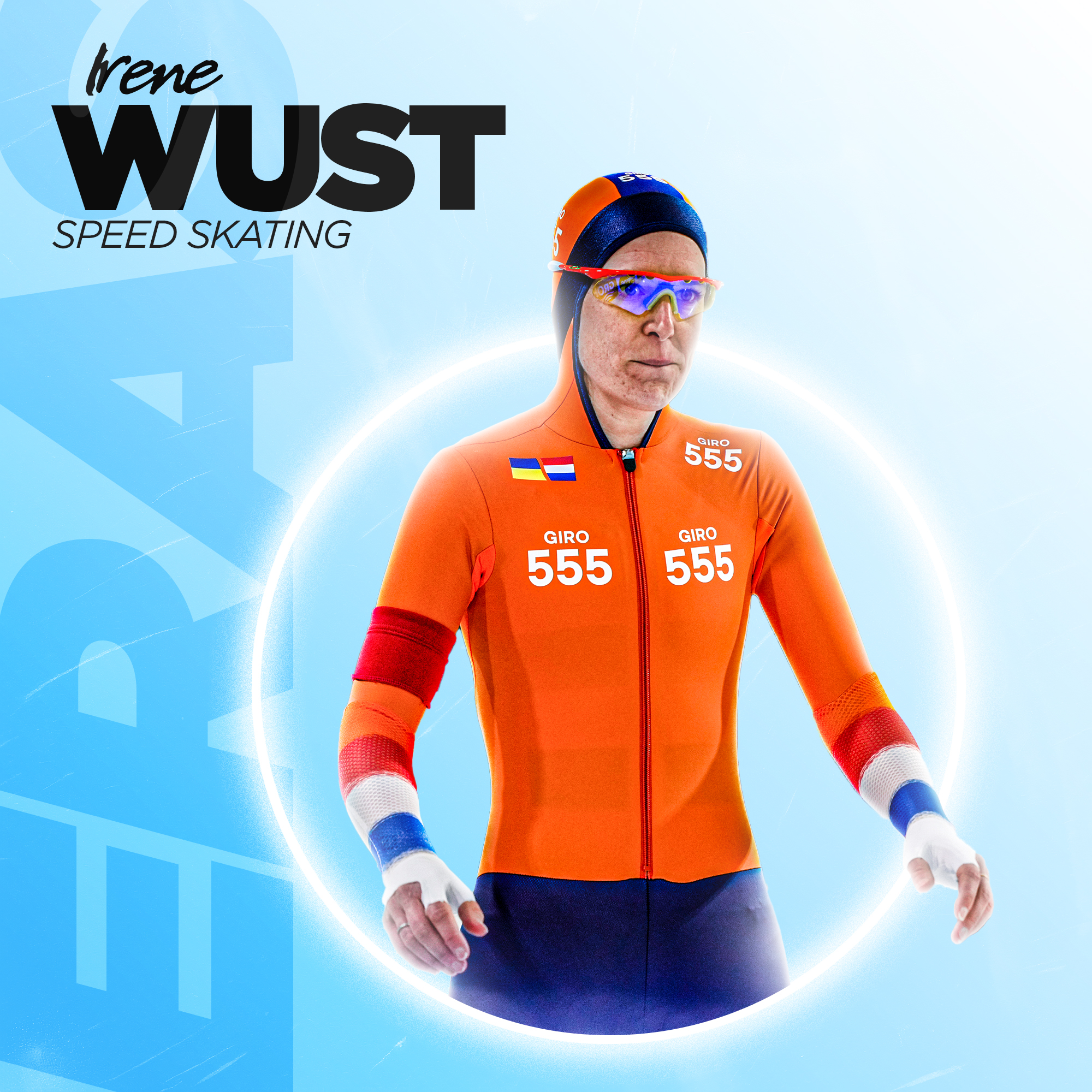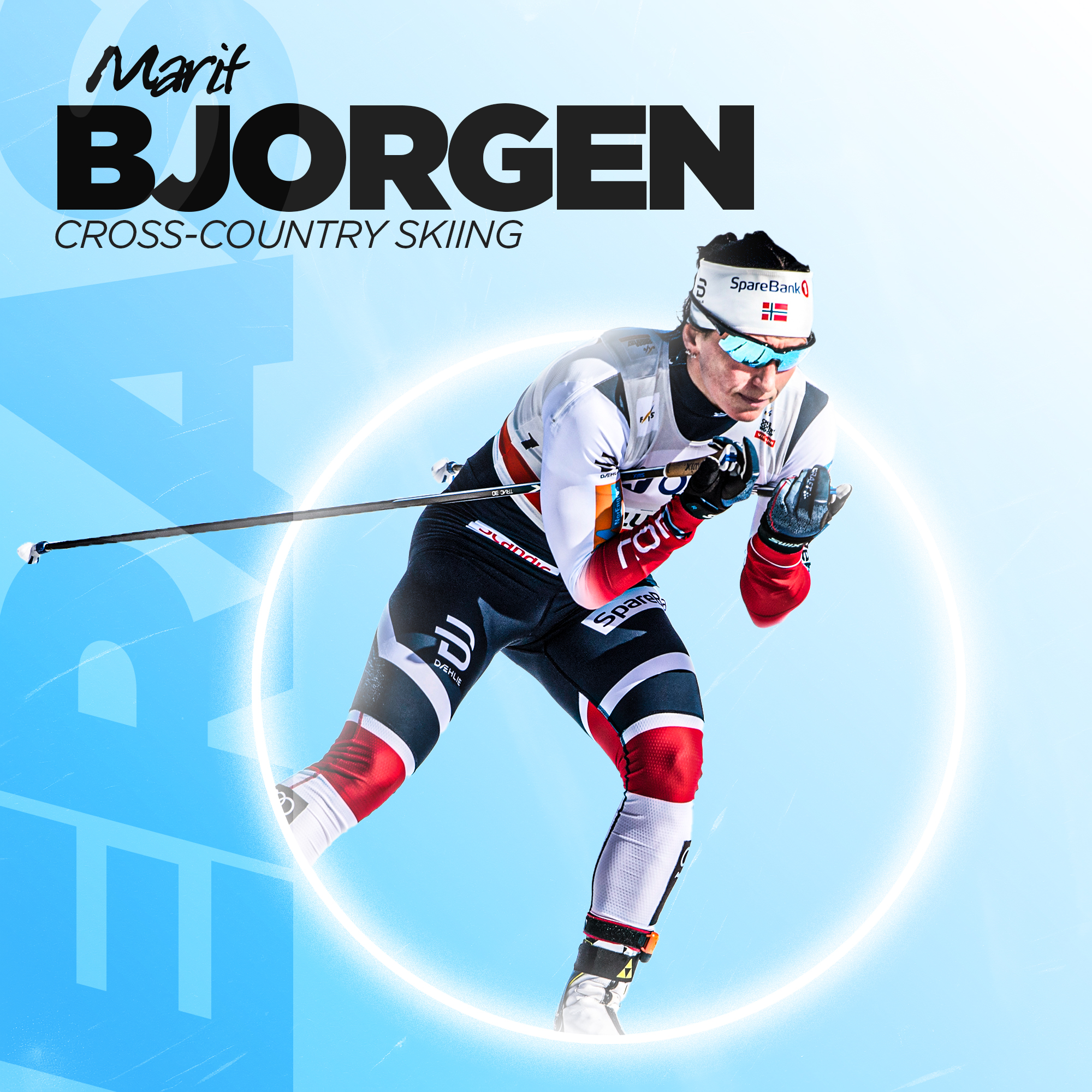Five-ring circus: Top 5 Winter Olympic bosses of the last 25 years
The Winter Olympic Games have undergone massive shifts since the start of the millennium.
Back then, snowboarding was in its Olympic infancy. It's since grown to become a fan favorite. The 2002 Salt Lake City Games were just the second to feature women's ice hockey, which is now a staple. And the emergence of athletes from nations that aren't traditionally thought of as winter sports powerhouses has expanded the reach of the Winter Games and increased interest globally. Those athletes - like Pita Taufatofua, who represented Tonga in PyeongChang's cross-country skiing event, or the six athletes from Eritrea, Ghana, Madagascar, Morocco, and Nigeria who competed in Alpine skiing and cross-country events at the 2022 Beijing Games - may not be household names, but they've made notable contributions to the growth of sport worldwide.
Our Olympic Eras series continues by spotlighting the top five Winter Games athletes of this millennium.
Keep in mind we haven't included NHL players, who will get their own top 25 in the fall, and other Canadian stars who appeared in Wednesday's edition.
Day 1: International standouts
Day 2: Canadian legends
Friday: Summer sensations
Saturday: Greatest American heroes

Signature performance: Ireen Wust became the first athlete to earn individual gold medals at five consecutive Winter Games after she won the 1,500-meter speedskating event at the 2022 Beijing Olympics.
Why she's here: In a country known for its speedskating dominance, Wust carved out her own identity, becoming the youngest Dutch Olympic champion in Winter Games history when she earned gold in the 3,000 meters at the 2006 Turin Olympics at the age of 19. She also earned a bronze in the 1,500 at the same Games.
At the 2010 Vancouver Olympics, she won gold in the 1,500 and added a silver in the 3,000. In 2014, Wust returned to the top of the 3,000m podium; she also added silver medals in the 1,000, 1,500, and 5,000 events. She then secured another gold medal in the team pursuit, winning by a massive seven seconds.
In PyeongChang, Wust missed out on gold in the 3,000 by 0.08 seconds. That silver, along with gold in the 1,500 and silver in the team pursuit, gave her 11 medals, the most by any speedskater in Olympic history.
In Beijing in 2022, at age 35, Wust became the first athlete to claim individual gold medals at five Olympic Games after securing first place in the 1,500.

Signature performance: Bjorgen collected her eighth gold medal - and 15th overall medal - in the final race of her Olympic career in PyeongChang.
Why she's here: There are many stars at the Winter Olympics, but Marit Bjorgen is the queen. The Norwegian cross-country skier is the most decorated Winter Olympian ever, and more than half of her medals are gold. Bjorgen has participated in five Winter Games, starting in Salt Lake, but it wasn't until her third Olympic appearance in Vancouver that she topped the podium for the first time and medaled in every event she competed in.
There, she won five medals: gold in the individual sprint, 15-kilometer pursuit, and 4x5km relay, a silver in the 30km classical, and a bronze in the 10km freestyle. In Sochi, Bjorgen added three more golds to her tally, winning the 15km skiathlon, 30km freestyle, and team sprint.
In PyeongChang, Bjorgen took home five more medals: gold in the 30km classical and team sprint, a silver in the 15km skiathlon, and bronze in the 10km freestyle and 4x5km relay. Bjorgen is the third-most decorated Olympian of all time behind U.S. swimmer Michael Phelps with 28 medals and Soviet gymnast Larisa Latynina with 18 medals.

Signature performance: In PyeongChang, Shaun White won his third gold medal in the men's halfpipe with a score of 97.75 points. His final run included back-to-back 1440s, securing the victory and cementing his status as a snowboarding legend.
Why he's here: White has become one of the most recognizable faces of snowboarding, helping to legitimize and popularize the sport in its first decade on the Olympic program. The three-time gold medalist made his Olympic debut for the United States at the 2006 Turin Games, where he won gold in the men's halfpipe. Already a star at home, this victory boosted him to international prominence.
In Vancouver, White successfully defended his title, winning another halfpipe gold. His performance included a near-perfect run featuring his signature trick, the double McTwist 1260. The score from his first run alone was enough to secure the gold.
White faced challenges in Sochi, finishing fourth in the halfpipe and missing the podium. However, he made a remarkable comeback in PyeongChang to win his third halfpipe gold, underscoring his resilience and ability to perform under pressure. White placed fourth at his fifth and final Olympic halfpipe event in Beijing.

Signature performance: In the short program at the 2006 Games, Plushenko opened with a flawless quadruple jump and continued to perform his masterful routine set to music from the opera "Tosca," leading the competition heading into the long program. His long program, performed to the soundtrack from "The Godfather," secured his first Olympic gold medal.
Why he's here: Plushenko made his Olympic debut in Salt Lake, where he won a silver medal with a memorable performance to music from "Carmen." In Turin, Plushenko reached the pinnacle of his career, winning his first gold medal. He returned to the Olympics in Vancouver and earned silver.
In Sochi, Plushenko competed in both the men's singles and the newly introduced team event. He contributed significantly to Russia's gold medal in the team event, performing in the short program and free skate. However, he withdrew from the men's singles due to injury. Plushenko's Olympic career, marked by two golds and two silvers, equals the male figure skating record set in 1932 by Sweden's Gillis Grafstrom.

Signature performance: Lindsey Vonn battled a shin injury in Vancouver to become the first American woman to win gold in downhill skiing.
Why she's here: Vonn made her World Cup debut at the age of 15 and first appeared in the Olympics at age 17 in Salt Lake City, finishing sixth in the combined and 32nd in the slalom. Injuries held her off the podium in Turin, so it wasn't until Vancouver that Olympic audiences got to see Vonn's greatness emerge. Coming off world championship victories in downhill and super-G in 2009, she fought through an injured tibia at the 2010 Olympics. There, she won gold in the downhill and bronze in the super-G, becoming the first American woman to win the downhill event.
In Sochi, Vonn was unable to compete due to injury. However, she returned to the Olympic stage in PyeongChang. There, Vonn won a bronze medal in the downhill, making her the oldest woman to medal in Alpine skiing at the Winter Olympics.
Vonn's story is one of remaining resilient despite injuries and setbacks. Her international success beyond the Olympics is notable; she has eight world championship medals, and her 82 World Cup victories make her the winningest female Alpine skier.
Jolene Latimer is a features writer at theScore.